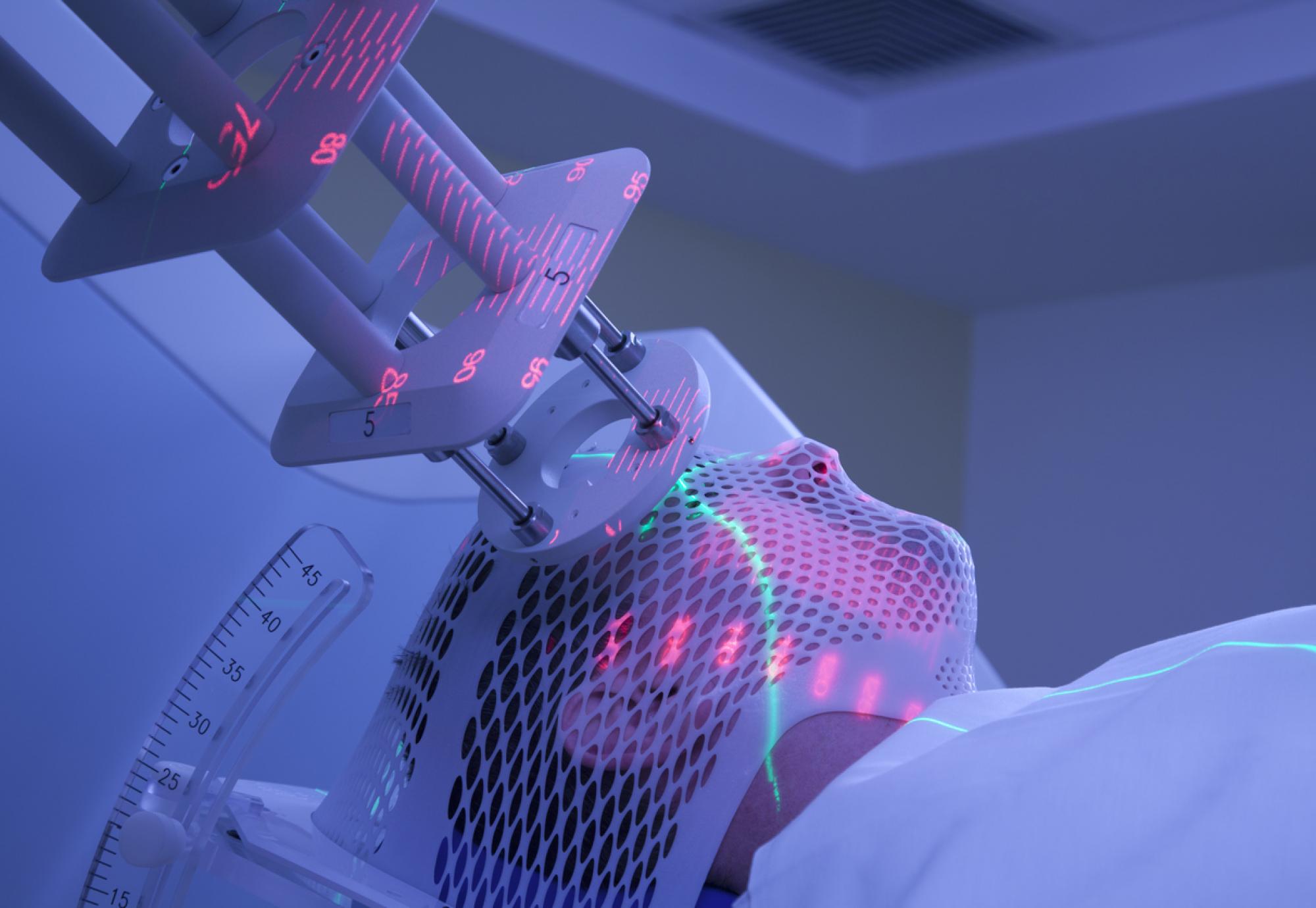A new radiotherapy technique for head and neck cancers can deliver a better treatment plan, according to The Royal Marsden NHS Foundation Trust.
The new treatment offers a more robust treatment plan in a shorter timeframe making it easier for patients to tolerate researchers have found.
The research was conducted by The Royal Marsden NHS Foundation Trust and The Institute of Cancer Research and was funded by Cancer Research UK.
The new approach, known as adapt-to-shape (ATS) lite, achieved a 99.9% accuracy rating and is delivered using the Magnetic Resonance Linear Accelerator (MR-Linac) machine – the first technology to simultaneously generate magnetic resonance images and deliver X-rays, precisely locating and visualising tumours and surrounding organs at risk while delivering radiation. The machine is the first of its kind in the UK and only the fourth in the world.
Over the course of treatment, the shape and position of tumours can change relative to nearby healthy tissue, which is why clinicians use ‘adaptive radiotherapy allowing for greater accuracy.
Study leader Dr Kee Howe Wong, Consultant Clinical Oncologist at The Royal Marsden NHS Foundation Trust, said: “Adaptive radiotherapy allows for flexibility to adapt the radiotherapy treatment plan to the patients’ anatomy in daily treatment session.
“ATS-Lite is a new and improved approach and, though we’re at an early stage, we have seen great results so far, with patients responding very well to the treatment.
“We now plan to further test, utilise and develop this approach in the coming months. This includes assessing advanced imaging on the MR-Linac to guide whether we can safely decrease the radiotherapy dose, which could help to reduce side effects, or escalate treatment if the patient isn’t responding sufficiently to the treatment.
“We are also working with our international colleagues within the MR-Linac consortium to gather data to develop evidence-based treatment.”
Researchers compared the adapt-to-position (ATP) treatment option using the MR-Linac and this new ‘half-way’ ATS approach, which provides adaptive radiotherapy without requiring a constant clinician presence to perform target and organ-at-risk recontouring.
After delivering and analysing 53 radiotherapy does it was discovered that ATS-lite passed 99.9% of mandatory dose constraints, whilst the ATP technique failed 7.6% of the dose constraints – indicating a higher rate of plan failure.
The quickest average time achieved using the ATS-lite treatment was also 32 minutes and 14 seconds compared to ATP’s average time of 46 minutes, making ATS-lite a significantly quicker process.
Study author Professor Kevin Harrington, Head of the Division of Radiotherapy and Imaging at The Institute of Cancer Research, London and Consultant Oncologist at The Royal Marsden NHS Foundation Trust, said: “We have come up with a new method to deliver radiation to head and neck tumours in a tolerable timeframe using the MR-Linac, making treatment sessions shorter and more comfortable for patients.
“The ATS-Lite approach will help us perform daily adaptive radiotherapy in a simpler and more efficient way, enabling us to move on from a ‘one size fits all’ approach and helping to increase cure rates and reduce side effects.
“A few hospitals across the MR-Linac Consortium have already started adopting the approach, which we hope will benefit many head and neck cancer patients while also saving time and resources, as it removes the need for a clinician to be present during radiotherapy delivery.”
More information on the new treatment is available here.



















